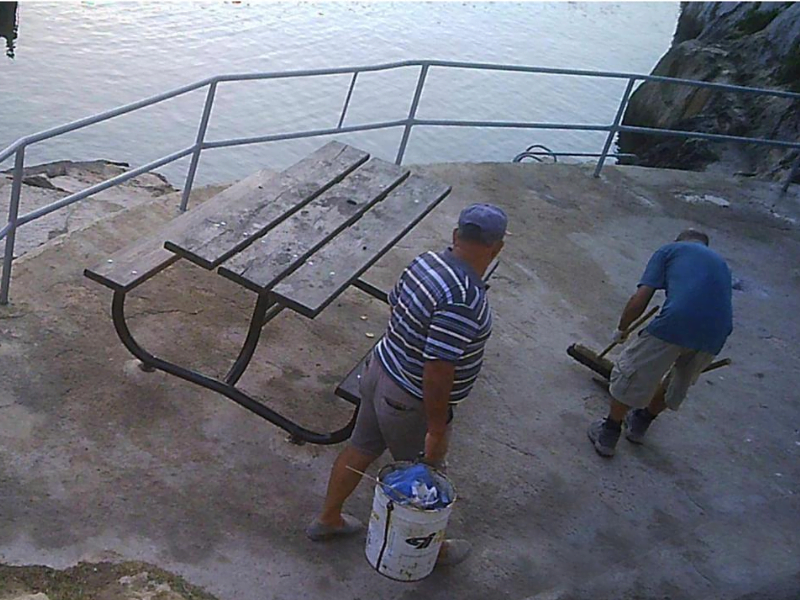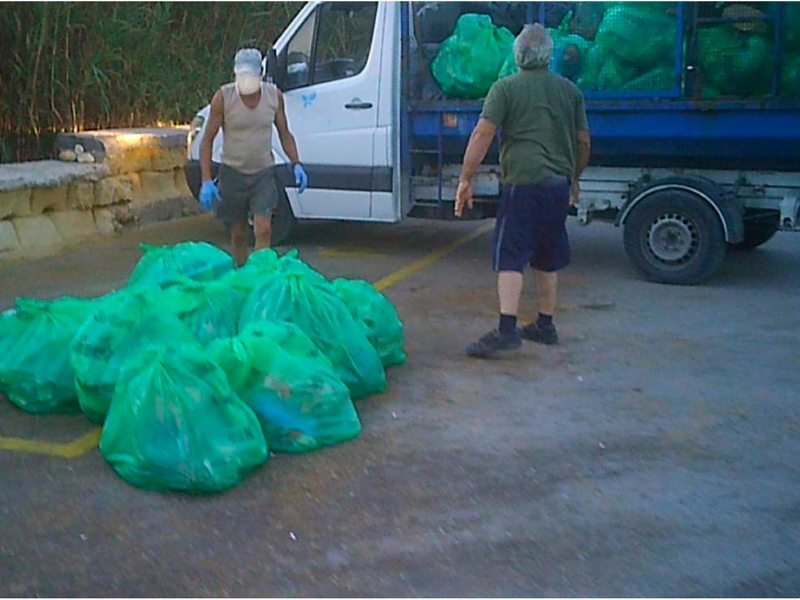A scheme designed as a vehicle to get people unemployed for longer than two years into productive work is being used as a route into government employment that bypasses normal recruitment procedures, an investigation by The Shift can reveal.
At least 920 are currently employed through the programme, which is run by Districts Operations Limited, a company majority-owned by the General Workers Union. The programme, which is called Community Work Scheme (CWS), is funded by the government at a cost of around €15 million annually.
Gozo has the highest per capita number of these employees, accounting for some 40% of the programme’s total employees, despite the fact that Gozo only has some 6% of the nation’s population.
The Gozo Ministry is assigned 25% of the CWS’s national tally, or 238 employees. As a comparison, all of the 68 local councils only have 296 of these workers assigned to them.
The Shift’s probe found that at least 37 other workers have been engaged by CWS in Gozo since last January, when Clint Camilleri became Minister.
Answering questions, a spokesperson for Camilleri denied the claim from sources that these latest recruits in Gozo were pushed forward by the Gozo Minister, saying it was “not true”.
CWS cleaners reassigned to overstaffed department
Questions on control over CWS workers were raised recently when Qala Mayor Paul Buttigieg apologised to residents for the absence of three street cleaners who had been “transferred” to the Gozo Ministry. Three days later, the Council hired a contractor to carry out the cleaning.
The Shift asked Kenneth Cutajar, CEO of District Operations, who was responsible for the decision to reassign these workers and whether the Gozo Ministry had requested the transfer.
He said questions should to be sent to Jobsplus, adding: “Staff allocations and movements are driven by requests from the said public entity [Jobsplus], or by social purpose entities identified by Jobsplus.”
Questions then sent to high-level Jobsplus officials remained unanswered.
The Gozo Minister’s spokesperson did not directly reply to the question either, but she sought to justify the reassignment – and in the process implicitly owned up to it – by pointing out that the Council has 10 workers, including 5 from CWS, which “address the exigencies of the village.”
Qala’s Mayor refuted this in his answers to The Shift, insisting that “nobody was available within the Local Council’s workforce to replace them.”

The department responsible for cleaning public areas accounted for the majority of CWS workers’ “deployments in Gozo.”
Multiple sources have told The Shift that these three employees were reassigned to the department responsible for cleaning public areas, including roads, rubble wall maintenance, and beach cleaning. An investigation by the National Audit Office, published last year, had identified this department as accounting for the majority of CWS workers’ “deployments in Gozo.”
Another source said that the number of beach cleaners in Gozo has increased massively this summer, even tripling or more on some beaches, and that CWS employees are among the complement of beach cleaners.
The Shift sought to verify this information at two different beaches in Gozo on two separate occasions.
In the first trip, The Shift found seven workers who cleaned a beach in 90 minutes. The job was not thorough, as sparse scatterings of litter were still present around the periphery of the beach. Just before departing, at 7am, one of the employees was overheard saying that it had been an especially difficult workday, and one of his colleagues answered wryly that “last summer there were only two of us”.
On another morning at a smaller beach, three workers collected half a bag of litter – most of it from bins – in 45 minutes. They were overheard discussing who would be reporting for work on subsequent days, and referred to a colleague not present at the time. This discussion tallies with information from sources that in some of the smaller beaches the overstaffing has led to beach cleaners taking turns going to work.
CWS loses direction
In 2009, upon setting up CWS, Jobsplus deployed the long term unemployed who were on its books into community work, mostly with local councils, topping their unemployment benefits to a level of income below gainful employment – thus the incentive to find a proper job would remain.
In 2016, after the GWU majority-owned District Operations took over its management, salaries were raised to the minimum wage, and workers given paid sick leave and vacation leave.
The salary was increased, yet again, by €200 monthly in 2018, and it currently stands at €11,543 as well as annual bonuses.
The Auditor General wrote in his report one year ago these dynamics have created a risk of “the Scheme becoming an end in itself rather than the means to enable participants to improve their employability chances in more productive sectors”.
In its concessionaire contract, District Operations can engage two types of workers: “severely disadvantaged persons”, who are defined as those who have been unemployed or inactive for more than two years, as well as another category called “additional resources.”
The NAO report described the latter as “loop-hole” that remains undefined and “can be interpreted as a catch-all clause within the eligibility criteria.”
Figures tabled in parliament earlier this year show that in Gozo approximately one-sixth of those engaged by CWS in the past three years had been registering for work for less than one month. Sources have told The Shift of cases in which people were engaged within days of registering for work.
The sources also said that Jobsplus officials who deal with the unemployed do not seem to be involved in selecting individuals for CWS – and they have no idea how newly hired staff are chosen, or by whom.
Among recruits that The Shift has been briefed about are individuals, whose details are being withheld, who previously worked in industries such as carpentry and construction before their employment with the CWS. Some have even retained their former jobs on fewer hours.
Another issue flagged in the NAO report was low productivity of CWS workers.
This has become dramatically evident in the case of the Qala street cleaners. Going by the figures in the NAO report, the annual cost to taxpayers of the three previous CWS-employed street cleaners would amount to €43,920 annually.
The cleaning task, which the Mayor said is being “done to the Council’s satisfaction”, has now been contracted at an annual cost of €18,720.












